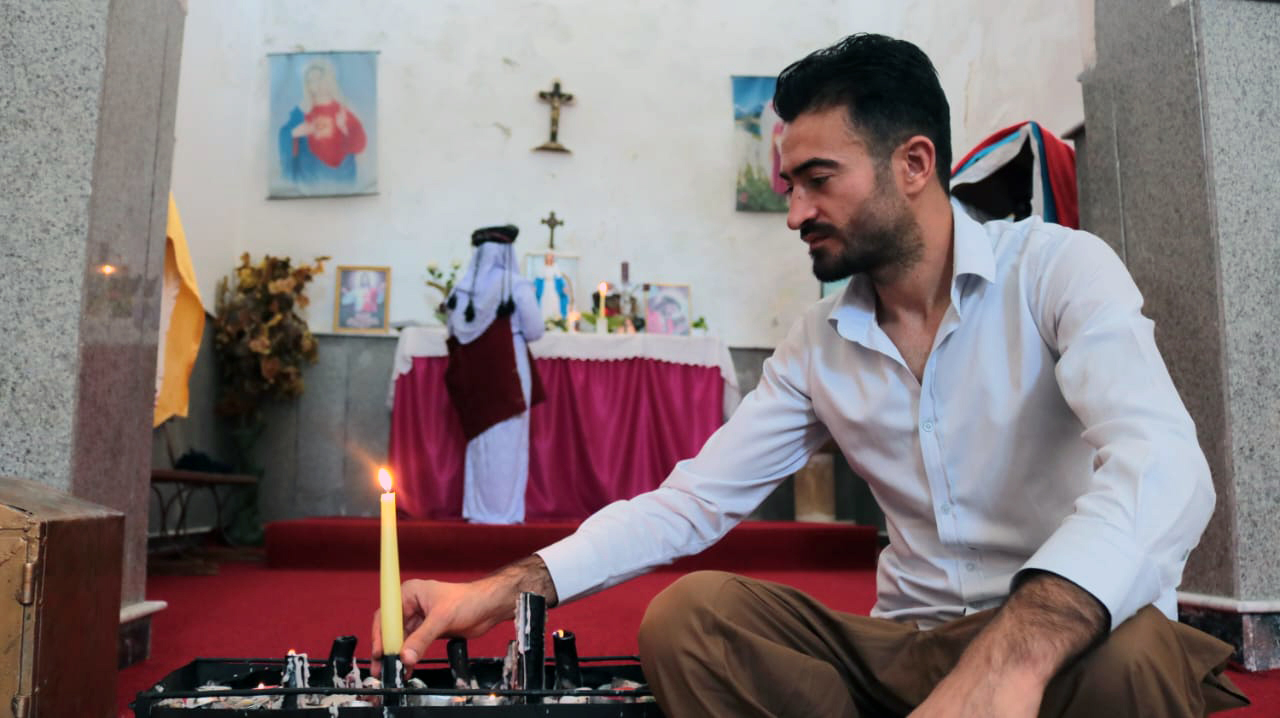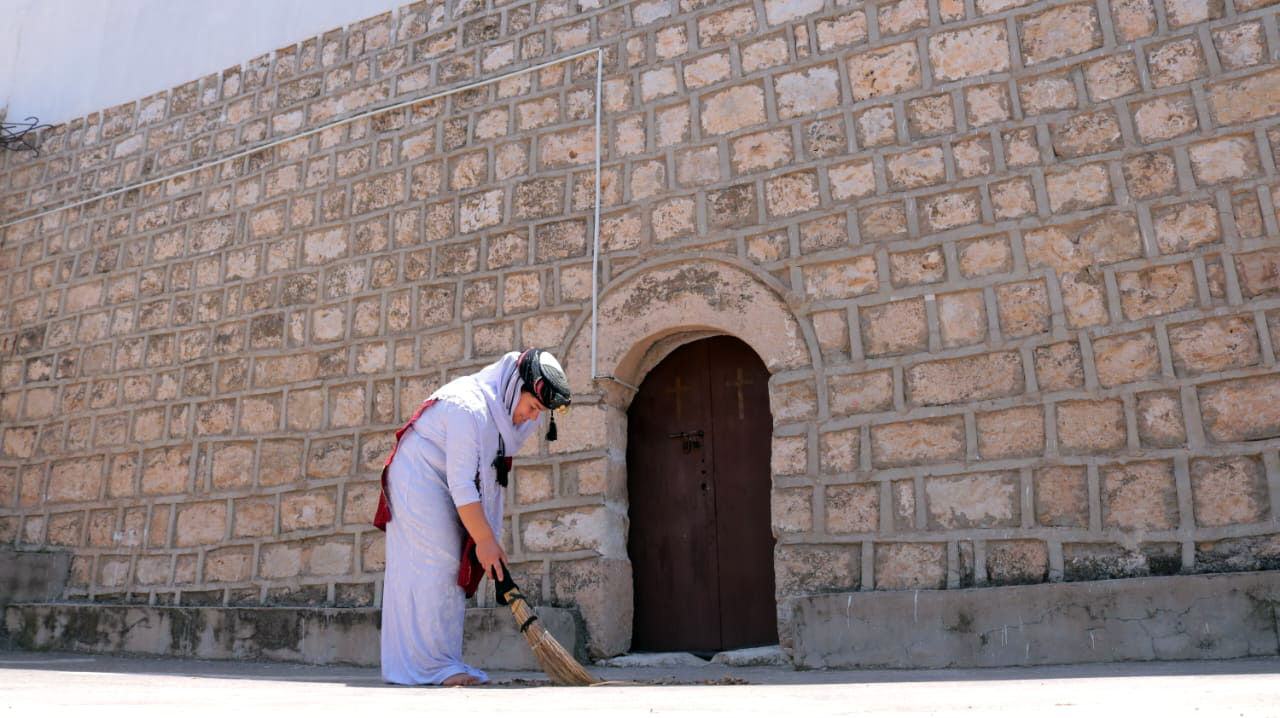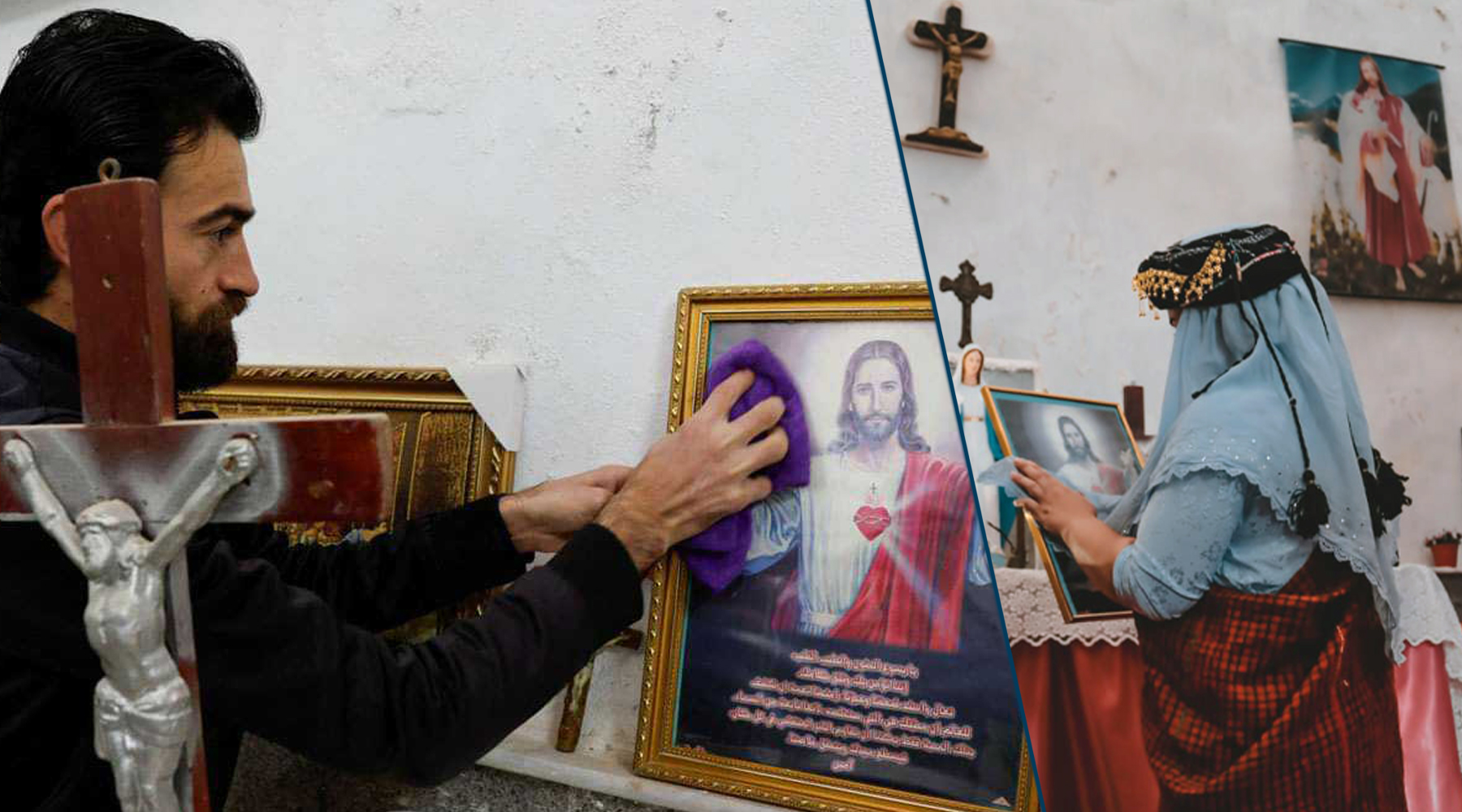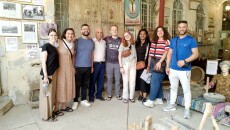The cross, benches and other contents of Mar Odisho Church shine with cleanliness, even though the church has not seen worship ritualsfor two decades.
The church has been abandoned for 21 years, but its doors have not been closed as an Ezidi family takes care of it.
Mar Odisho Church is located in the Nusayriyya complex in the Alqosh district (40 km north of Mosul). The complex was once home to a section of the Christians of the Nineveh Plain, before the last Christian families left the area for exile in 2003.
For more than two decades, Shahnaz Braim, her husband and children have been cleaning the church twice a week, on Sundays and Thursdays.
“We do this for free, we only seek to please God,” Braim told (KirkukNow).
The non-Muslim Ezidi family inherited the care of the church from their fathers and relatives, despite their following a different religion.
“We all live in this area and there is no difference between us. What we are doing here is a good example of religious coexistence and acceptance of others,” said Wael Jijo Khodida, Shahnaz’s husband, (32 years old).
In Alqosh, there is the Bandawya Resort, the Alqosh Folklore Museum, the Shrine of Nahum, the Monastery of Rabban Hormuz, and the Monastery of the Virgin Mary, in addition to the old village of Alqosh, which was rehabilitated with a heritage design that attracts tourists.
IS militants did not reach the center of the Alqosh sub-district of Tal Kef district in 2014, so the destruction did not extend to its archaeological sites and summer resorts.
The founding of Alqosh (40 km north of Mosul) dates back to the seventh century BC, and it is now a sub-district affiliated with the Tel Kayf District in the Nineveh Plain. It includes three compounds and 83 villages, home to over 50,000 people, most of whom are Christian, in addition to Muslims, Ezidis (Yazidis), and Shabaks.

Khodida pointed out that his family immigrated outside Iraq years ago, so his family took on the task.
“My parents always advised me to take care of the church.”
The Nusayriyya complex is less than eight kilometers from the center of Alqosh district. It was previously home to Christians only, but it has been devoid of any Christian families for 21 years and is currently home to 500 Ezidi families.
The term "Ezidi" originates from the word "Ezdan," meaning God, representing an ancient monotheistic religion that is considered an extension of the Mithraic religion. The sacred Ezidi texts consist of two parts: The Book of al-Jalwa and the Black Book (Bushafa Rash), as well as sayings, verses, and poems, all written in the Kurdish language (Kurmanji dialect).
Ezidism is an ancient Middle Eastern monotheistic ethnic religion that believes in one God who created the world and entrusted it to seven Holy Beings, known as Angels, with Melek Taus being the prominent leader with authority over the world.
Some Ezidis view Ezidism as both a distinct religious and ethnic identity, separate from the Kurdish identity.
There are an estimated 550,000 Ezidis in Iraq. Many members of this community were displaced, with over 100,000 Ezidis immigrating from Iraq, according to statistics from the General Directorate of Ezidi Affairs in the Kurdistan Regional Government (KRG).
Ezidis mainly reside in the Sheikhan District, north of Mosul, administratively part of Erbil Province, the capital of the Iraqi Kurdistan Region (IKR), and the Shingal (Sinjar) District (120 km west of Mosul, administratively part of Nineveh Province.

“We visit the church twice a week for cleaning and maintenance purposes,” said Khodida, who pointed out that they themselves buy cleaning materials and other things.
The husband, wife and their two children visit the church together. The two days they are there are like a cleaning campaign. One of them organizes and cleans the seats and the other takes down the pictures and polishes them with a piece of cloth. The cleaning campaign usually takes two hours.
“We clean all the corners of the church,” Shahnaz said, adding that they have been taking care of the church twice every week.
The Mar Odisho Church dates back to 1712 and was an important religious site for Christians in Nineveh, Erbil, Dohuk and other areas. In addition to the church, there is also an Ezidi religious shrine in the Nusayriyya complex.
There are seven churches in Al-Qush, 30 sites and shrines of Ezidis, and over 10 mosques of Muslims.
The number of Christians in Iraq has declined to 250,000, most of whom live in the Kurdistan Region of Iraq KRI, while estimated at 1.5 million in 2003, according to statistics from the High Commission for Human Rights in Iraq.
“Even if it was a mosque, we would do the same thing and take care of it. For us, there is no difference between religions. This place belongs to Christians and we must preserve it,” Khodida says.






